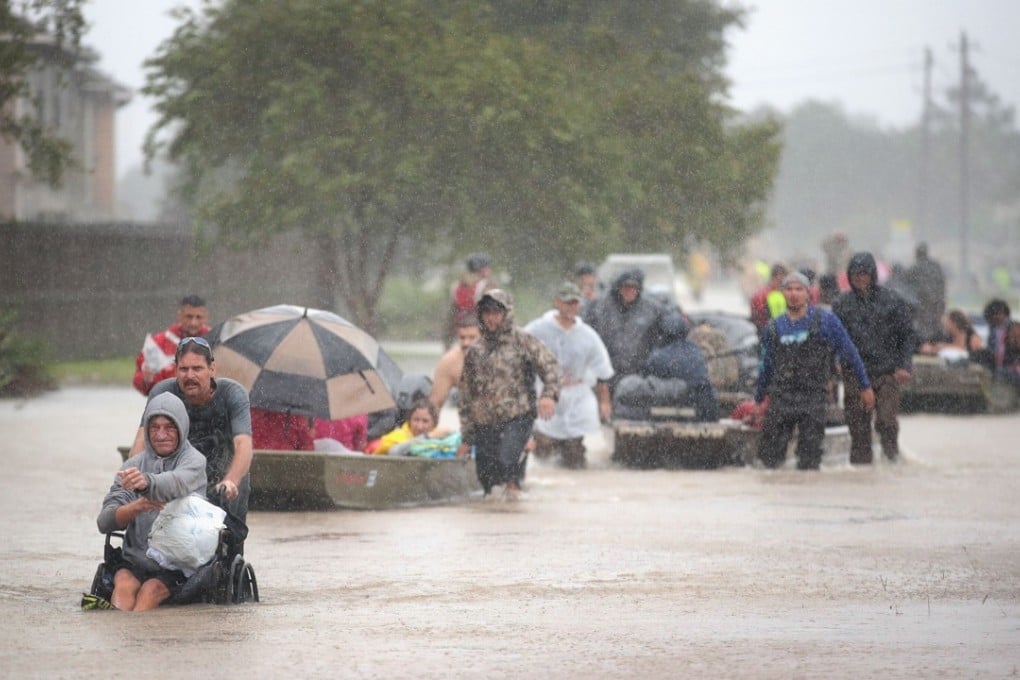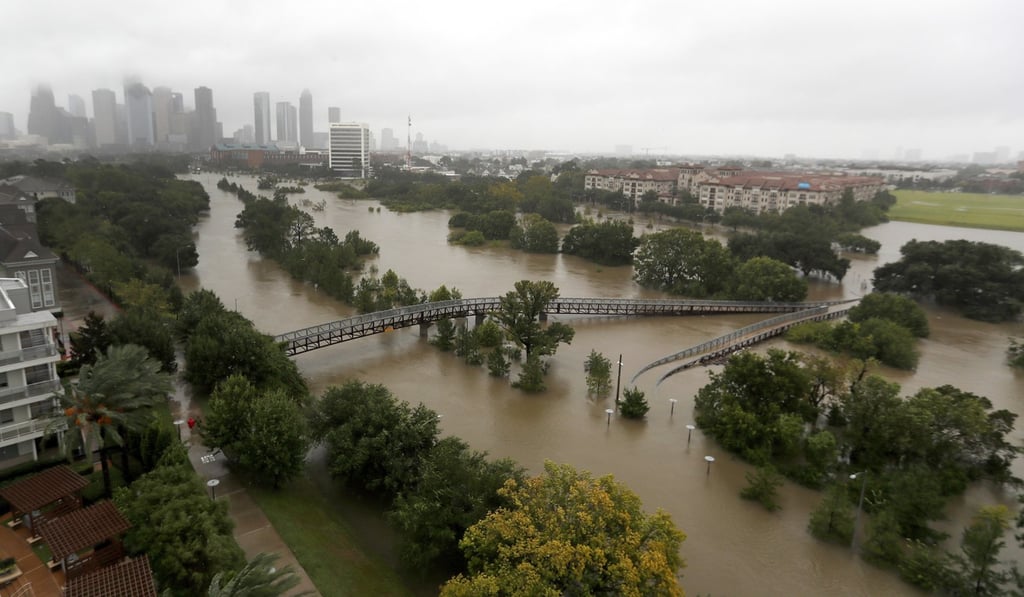Super soaker: scientists say Harvey may be a soggy taste of future storms in a warmer world
Climate change might not be to blame, but the drenching of Texas illustrates how global warming could change the way storms behave

By the time it’s done, former hurricane Harvey will have dumped about 3.8 million litres of water for every man, woman and child in southeastern Texas. That’s 1 million gallons per person.
It’s a soggy, record-breaking glimpse of the wet and wild future that global warming could bring, scientists say.
While scientists are quick to say that climate change didn’t cause Harvey and that they haven’t determined yet whether the storm was made worse by global warming, they do note that warmer air and water mean wetter and possibly more intense hurricanes in the future.
“This is the kind of thing we are going to get more of,” said Princeton University climate scientist Michael Oppenheimer. “This storm should serve as warning.”

